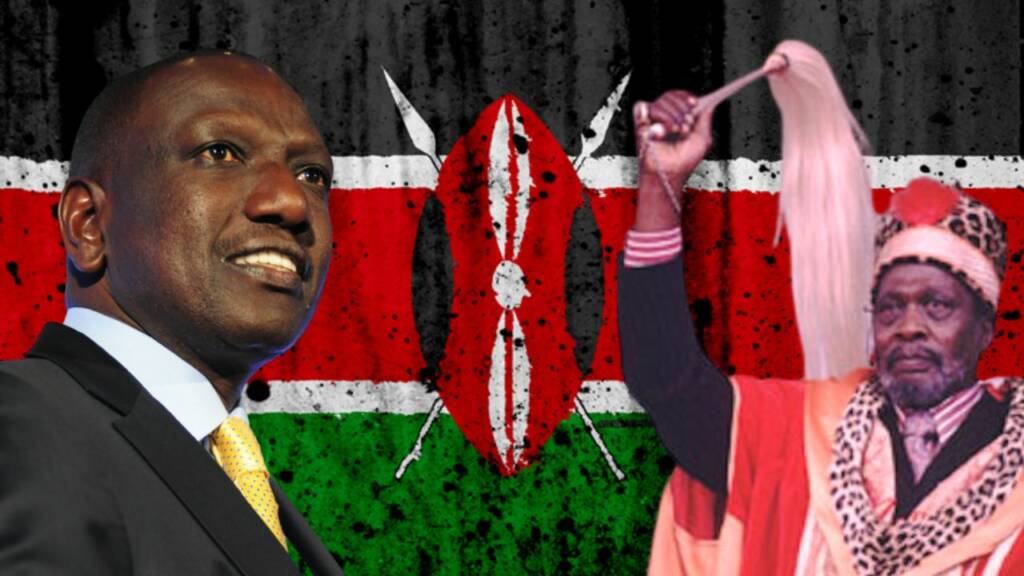Estate Duty Act: William Ruto, has risen from being a chicken seller to be the President of the most stable democracy in East Africa. He had a childhood that epitomizes the lives of many poor Kenyans. When he became the President, he hailed it as “a moment like no other” and today he is seen as the leader who can take Kenya to greater heights. So far, much has been said about his foreign policy and efforts to project Kenya as a strong regional power in East Africa. Now, his efforts to bring reforms in Kenya are once again set to be tested as it might end up confronting the legacy of its very founding fathers.
Read More: Ruto takes “Kenya First” to a whole new level
Estate Duty Act
Jomo Kenyatta was the first President and the founding father of the African nation. However, a row has erupted in Kenya over an “Estate Duty Tax” which was amended two times during the reigns of Jomo Kenyatta and his successor Daniel Moi. Both the amendments by these two Presidents were to remove them from the list of taxation of their estates.
One of the laws amended at the time of the formation of Kenya, was the Estate Duty Act. These amendments were assented to by Jomo Kenyatta on the 12th of June 1969. Section 7 of the Estate Duty Act imposes the estate duty stating, “Whenever any person dies […], a tax known as estate duty shall, […] be levied and paid on all property on which the deceased (person) was at the time of his death competent to dispose. An Excise Duty shall be levied on all property in which the deceased or any other person had an interest, ceasing upon the death of the deceased and on all property which immediately before the death was held for the use or enjoyment of two or more persons of whom the deceased was one.”
Since its introduction, the law was applicable to every Kenyan upon their death for six years.
However, Section 7 of the Estate Duty Act was amended by Jomo Kenyatta and a new provision was introduced which stated that the imposition of estate duty, “shall not apply to His Excellency Mzee Jomo Kenyatta, First President and Commander in Chief of the armed forces of the Republic of Kenya.”
Jomo Kenyatta was succeeded by Daniel Moi. Later, the Parliament enacted another miscellaneous amendment bill, signed into law by Daniel Moi. The law amended Jomo Kenyatta’s clause deleting the words “first president and commander in chief of the armed forces of the Republic of Kenya, to read, “the section shall not apply to His Excellency Mzee Jomo Kenyatta nor to His Excellency Daniel Toroitich arap Moi”.
Tussle over Estate Duty Tax
In this regard, recently, Nandi Senator Samson Cherargei has written to the clerk of the Senate seeking to amend the old statute that exempted former Presidents Jomo Kenyatta and Daniel Moi from paying the tax on the passing of inheritance to their families. Nandi Senator Samson Cherargei now wants the section amended to delete the exemption of the first two presidents and instead state that the “section shall not apply to the disabled, minorities and marginalized as provided by the relevant law.”
Now, whether this law is amended or not will depend on the political willingness of William Ruto to challenge the legacy of Kenya’s founding father Jomo Kenyatta. Further, if the law is amended and the exemption of the first two Presidents is deleted and instead exempt the “disabled, minorities and marginalized” as has been proposed by Senator Cherargei, it will once again solidify Ruto’s image as the “people’s leader” and a “reformist” that the nation wants. However, at the same time, this will once again, put him on a collision course with his predecessor and Jomo Kenyatta’s son Uhuru Kenyatta.
Read More: Ruto’s Strategic Diplomatic Endeavours Bring Him a Step Closer to IGAD Leadership
The history between Ruto and his predecessor Uhuru Kenyatta has been marked by tangled ties and the primacy of personality over politics. Now if Ruto amends the law, it might be seen as an Estate Duty Act to settle political scores with Kenyatta family but it might become politically risky for Ruto. Therefore, going forward, it is to be seen how Ruto emerges from this political quagmire and charts his way forward.
https://www.youtube.com/watch?v=8xPmM4y-6Dc
